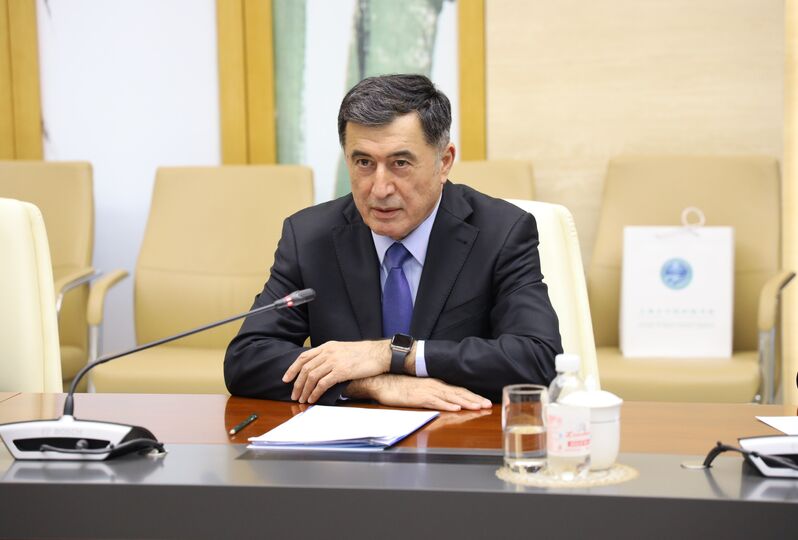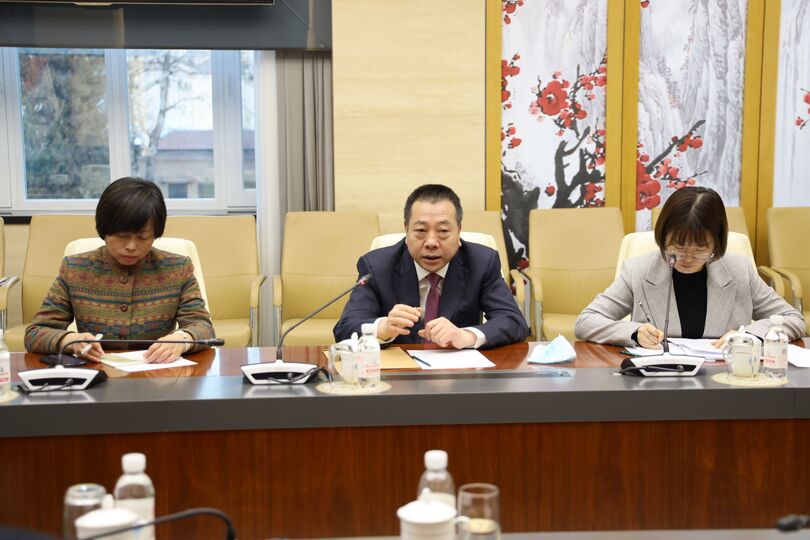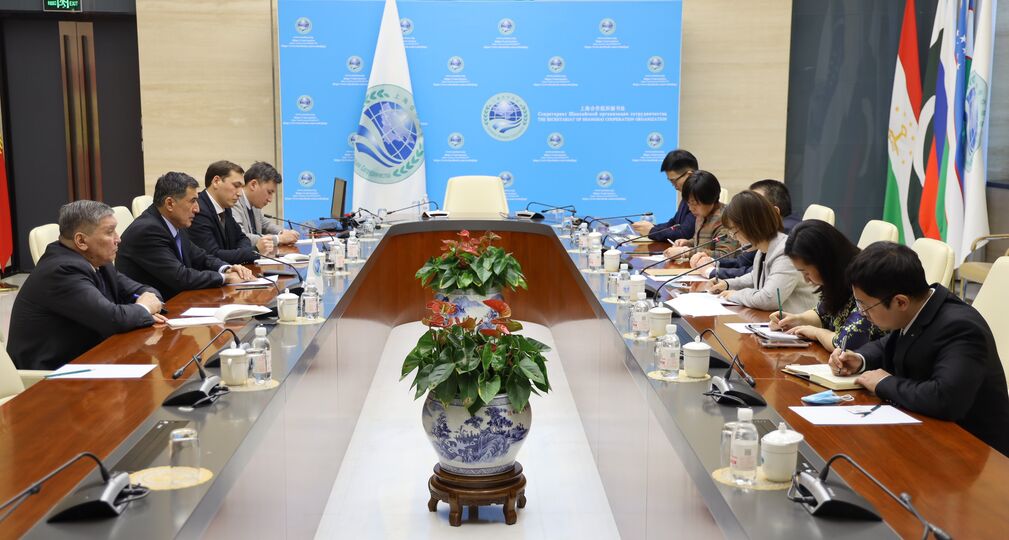On 4 February 2021, SCO Secretary-General Vladimir Norov held a working meeting with Lin Xuerong, President of Beizhong Yilin Pharm Tech (Beijing) Co., Ltd. and Board Chairman of the Chinese-Uzbek Traditional Medicine Centre, and Zheng Wei, General Secretary of China's SCO Committee on Good-Neighbourliness, Friendship and Cooperation.
During the event, the SCO Secretary-General emphasised that increasingly more countries today are recognising the importance of traditional medicine for public health and successfully implementing it into the respective national healthcare systems. Mr Norov reported on the SCO member states' growing interest in the development of cooperation in the field of traditional medicine and its integration with modern healthcare practices when it comes to treating infectious diseases, including COVID-19. He specifically mentioned the WHO Global Report on Traditional and Complementary Medicine 2019, according to which 109 countries had officially recognised the traditional medicine system. He also informed those present at the meeting about the SCO Forum on Traditional Medicine that was held online on 30 July 2020, and a webinar devoted to the role of traditional medicine in achieving the goal of sustainable development across the SCO (22 September 2020).

Vladimir Norov noted that the existing healthcare system in the SCO member states with its state-of-the-art innovation could only benefit from traditional medicine methods. In this context, the Secretary-General confirmed that the Organisation's member states attach great importance to strengthening cooperation in traditional medicine and support its development. During the last year's SCO summit, Prime Minister of India Narendra Modi underlined the industry's importance and initiated the launch of a working group on traditional medicine. At the same time, President of China Xi Jinping called on the SCO countries to expand traditional medicine knowledge and expertise exchange and to hold another forum on the topic in 2021.
The SCO Secretary-General concluded his remarks by saying that traditional medicine has enormous potential when it comes to alleviating the burden of diseases and epidemics, and its proper integration with the national systems of modern medicine across the SCO will contribute greatly to improving the health of the people. He suggested that the establishment of the Chinese-Uzbek Traditional Medicine Centre was a vital practical step in the further promotion of traditional medicine across the member states. Vladimir Norov also stressed the need for creating a cooperation programme on traditional medicine between the member states.
Lin Xuerong, Board Chairman of the Chinese-Uzbek Traditional Medicine Centre, outlined the opening stages and focus points of the centre based in Tashkent, Uzbekistan. He noted that the centre relies on environmentally safe medication produced from medicinal plants. There is also a Chinese pharmacology showroom, departments of Chinese and Uzbek medicine, as well as a diagnostics and a treatment area.

Lin Xuerong stressed that the medication commonly used in traditional medicine proved effective against COVID-19. Herbal treatment significantly helped patients suffering from minor symptoms such as coughs and temperatures. Patients in a more severe state were also treated with herbal remedies to restore sufficient blood oxygen levels and to prevent their conditions from becoming even more critical. Traditional medicine methods can also impact the overall recovery after an illness. Scientists are currently researching the entire available potential of traditional treatments for COVID-19.
Lin Xuerong proposed holding a series of online conferences devoted to traditional medicine that would involve industry experts from the SCO countries. He offered to provide the necessary assistance required for the organisation of such events.
General Secretary of China's SCO Committee on Good-Neighbourliness, Friendship and Cooperation Zheng Wei reported that China is currently preparing for the SCO Forum on Traditional Medicine and stressed the timeliness and relevance of the proposals on holding further online conferences.
